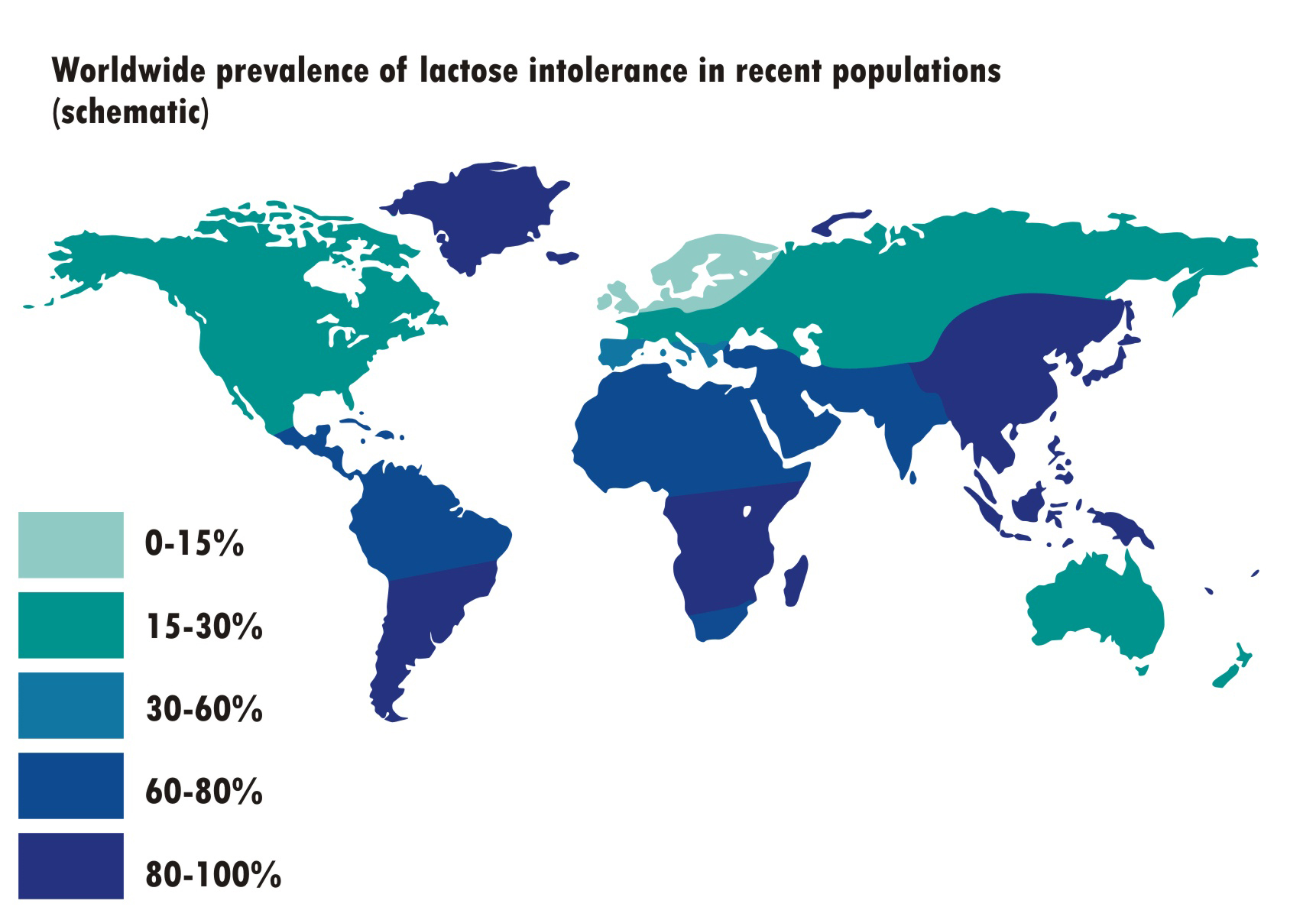I’m extremely allergic to milk so I have to avoid it at all times, and in the United States, there is milk in so much things and in random places that shouldn’t be there like in bread. What does milk even contribute to it? Asides that, milk is in cheese, and cheese is in many places, as well as the many milk products like whey and buttermilk, limiting me heavily in what I can eat. Besides that, whatever alternatives there are to replace foods with milk is way more expensive than its milk counterpart, making me spend way more money because of my damn allergies. Like, why??? Besides, I’m literally the only one in my family with these allergies, so talk about shitty genetics. To add to that, not many parties and restaurants couldn’t give a single fuck about my allergies, putting me at way more risk, as most restaurant menus don’t have indicators for if it has dairy or not, like I could die if I literally eat those, incompetency. And besides, consuming dairy is literally culture over there, leaving me alone. I wish I could live in denial about it.
I’m also allergic to peanuts but, peanuts aren’t used in much, so I’m alright about that, but dairy allergies really suck.
I’m also considering maybe becoming vegan, it probably wouldn’t be that hard to adjust to it.
there is milk in so much things and in random places that shouldn’t be there like in bread. What does milk even contribute to it?
Not a big baker and not to discredit your struggle, but there’s actually good reasons for milk in baking. The sugars, proteins and lactic acid in milk contribute heaps for texture, crust, taste, they activate other ingredients like yeast and the liquid itself adds moisture obviously. It’s not like corn syrup that’s artificially added to recipes, it’s a very old and traditional ingredient in baking for good reason. Just sucks for people like you that can’t eat it.
If you’re in favor of human liberation, non-human liberation is the logical next step
As a severely lactose intolerant person, going vegan for a while and pretending to still be later saved me a lot of unpleasant milk experiences. Wholeheartedly recommend trying it out.
Fellow dairy allergy in the US here, though I’m fortunate it’s not anaphylactic so I don’t have to worry about dying. I also am constantly frustrated by dairy being in everything. And so many places don’t offer proper allergen menus! Something about the proteins in milk give it a uniquely addicting flavor, it’s what makes McDonalds fries so delicious. Wouldn’t be surprised if there was also a dairy industry lobbying thing going on, making sure every product has unnecessary milk in it.
Wait… there’s milk in McDonald’s fries?
Unfortunately.
As a vegan USian, I feel your pain.
Could you give me some tips about going vegan for a potential newbie. I know consulting a dietitian would be way better, but tips coming from actual vegans would help as I don’t know any irl vegans.
Same. There are two types of diets: vegan, and wrong. And I’m tired of doing the wrong one.
I haven’t consulted with a dietitian or anything, but if that makes you feel better then sure. You can get pills for omega-6(?) and b13.
I’ll start by saying the alternative products aren’t too bad at this point. Earth balance and other faux butters taste exactly the same as butter, but you don’t have to worry about it being baby food stolen from a bunch of abused greenhouse gas emitting cattle. There’s some good fake cream cheese (there’s some bad stuff too, so try a variety). Vegan cheeses aren’t too bad anymore. Try a variety of meat alternatives you may like some and not others. Some, like impossible brand are pretty realistic. Tofu’s great, people think it isn’t because too many of us crackers don’t know how to season food. Again, you may like some milk alternatives more than others. I used to drink milk, but now I don’t even drink the alternatives. I never liked eggs too much, so they were relatively easy to cut, but you can use flax for them in baked goods.
I suggest you add things before you cut things. Eat more nuts and try coconut milk before you cut meat and dairy. It’s very easy to get adequate protein from plants if you get plenty of beans, broccoli, and so on.
One thing to remember is that it’s cheaper to be a healthy vegan/vegetarian than a healthy meat eater.
Tell me if you have more questions. ___
deleted by creator
Sure, but sleeplessone might not have, along with any other lurkers.
I’m a newbie but one piece of advice I wanna give is embrace the meat substitutes like Beyond or Gardein. Shop around and see what you like and add those to your meal rotation.
Textured vegetable protein and tofu are also so cheap compared to beef and chicken. TVP especially works well in tacos or spaghetti sauce. Air-fried tofu has been my best attempt so far at duplicating how the local Thai places do tofu. Marinade however you like and toss it in the air fryer for 20 or so mins.
Tip for baking recipes, dont look at vegan baking recipes, they’re usually overly complicated or bad. Use normal recipes and make the appropriate substitutes (1 tablespoon flaxseed to 3 tablespoons water and then left to sit for a few minutes for 1 egg, plant milk for milk, oil works for butter, etc.).
Pretty sure this isn’t specific to the United States. The whole worlds diet basically has dairy in some form or another, no?
Most people are lactose intolerant, actually. Only about 35% of people have the full ability to digest lactose. That’s not quite the same thing as an allergy, but even so dairy is not the norm worldwide.

That map looks extremely arbitrary to me. Knowing what little I know of a few cuisines, it doesn’t sound possible that regions where there’s a very rich tradition of meals/desserts with milk and a prevalence of yoghurt and cheese would have 30-60% lactose intolerance.
I was gonna disagree but like… Mongolia is in the dark blue? And most of the middle east + India?
Places like India and Korea have quite a bit of dairy and cheese for sure. This map seems too broad to be accurate.
Isn’t milk addictive* due to the high caloric content and some other things? Aka a good thing to use to up sales. I’m sorry you have to live in US. I know it’s really bad there. :(
Posted this comment elsewhere, but is relevant here so I’ll repost:
Further research is needed, but when digested casein breaks down into casomorphin which might bind to opioid receptors and release dopamine.
Sources:
I’ve never heard the claim that milk is addictive, but I could see it.
Ohh, I’ve heard it multiple times. I was told why it was so hard to quit it. I definitely felt a withdrawal when I did but it eventually passes. You might relapse and it’s hard again but once you get over it the cravings stop.
I liken it to sugar addictions. It’s not comparable to drug addictions, but the cravings are intense and people are effectively addicted to the flavor. 18 months into my allergy and I still have really intense cheese cravings.
Sugar is far worse than typical drug addictions from a population perspective, look at all the health crises we have as a result of high sugar foods. Modern “food” is a crime.
Cheese is like a 100 times more delicious than milk though
What about a cheesecake milkshake?
Is it good?
Never tried it. I just thought of a way of combining milk and cheese. Don’t think it’d work at all with camembert.
deleted by creator
SOY GANG WHOLE LOTTA GANG SHIT















